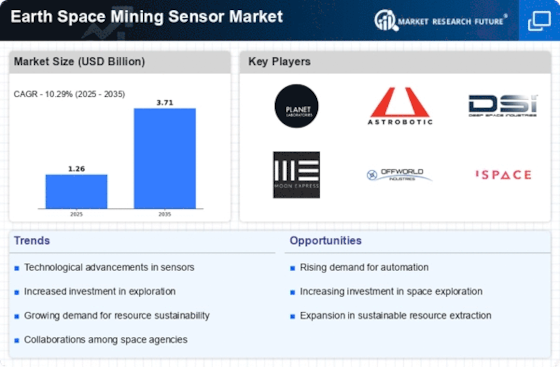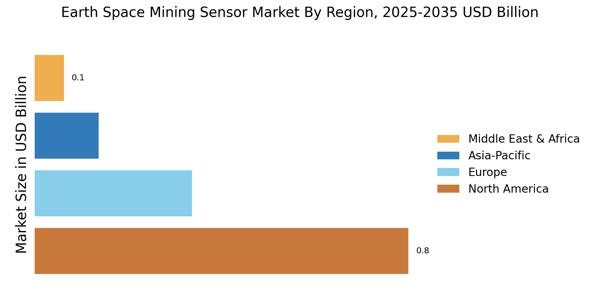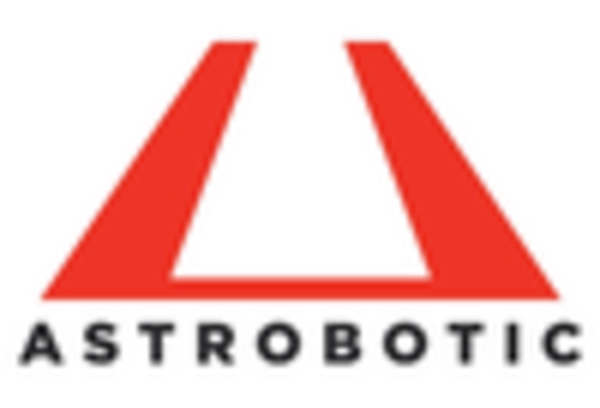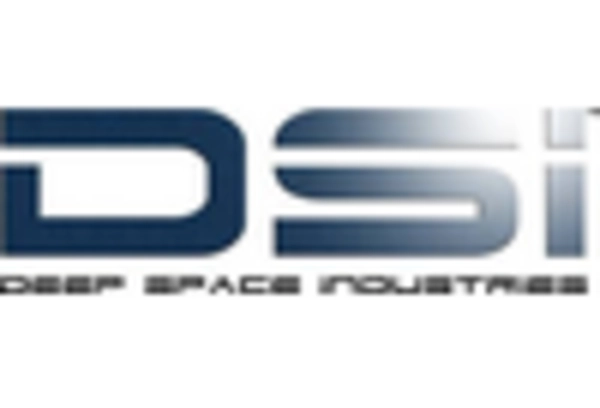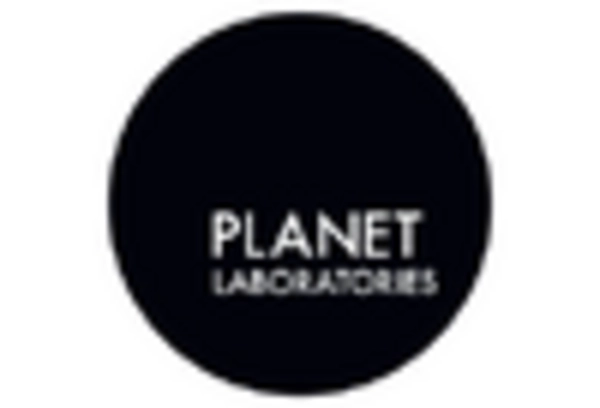Advancements in Remote Sensing Technologies
The Earth Space Mining Sensor Market is witnessing advancements in remote sensing technologies that enhance the capabilities of space mining sensors. These technologies enable the collection of data from vast distances, allowing for comprehensive analysis of celestial bodies. The integration of satellite imagery and hyperspectral imaging into sensor systems is particularly noteworthy, as it provides detailed information about the composition of asteroids and other targets. This capability is crucial for identifying viable mining sites and optimizing extraction processes. The market is expected to grow as these remote sensing technologies become more sophisticated, with forecasts suggesting a potential market expansion of 18% in the next five years.
Growing Demand for Resource Utilization in Space
The Earth Space Mining Sensor Market is significantly influenced by the growing demand for resource utilization in space. As terrestrial resources become increasingly scarce, the need to explore and exploit extraterrestrial resources is becoming more pressing. This trend is supported by various space agencies and private companies investing in technologies that facilitate the extraction of resources from asteroids and other celestial bodies. The market for space mining sensors is expected to expand as these entities seek to deploy advanced sensors capable of identifying and quantifying resources in space environments. This shift towards resource utilization is likely to propel the market forward, with estimates suggesting a market size increase of over 20% in the coming years.
Rising Interest in Sustainable Space Exploration
The Earth Space Mining Sensor Market is increasingly aligned with the rising interest in sustainable space exploration. As environmental concerns grow, there is a push for responsible mining practices that minimize ecological impact. Sensors designed for space mining are being developed with sustainability in mind, focusing on efficient resource extraction methods that reduce waste and energy consumption. This trend is likely to attract investment from environmentally conscious stakeholders and organizations. The market could see a shift towards sensors that not only identify resources but also assess the environmental impact of mining activities, potentially leading to a 25% increase in market demand for sustainable sensor technologies.
Technological Innovations in Earth Space Mining Sensors
The Earth Space Mining Sensor Market is experiencing a surge in technological innovations that enhance sensor capabilities. Advanced materials and miniaturization techniques are leading to the development of more efficient sensors. These innovations allow for improved detection of valuable resources such as rare minerals and metals in space. The integration of artificial intelligence and machine learning into sensor technology is also noteworthy, as it enables real-time data analysis and decision-making. As a result, the market is projected to grow at a compound annual growth rate of approximately 15% over the next five years, driven by the increasing demand for precise and reliable sensors in space mining operations.
Increased Collaboration Between Private and Public Sectors
The Earth Space Mining Sensor Market is benefiting from increased collaboration between private companies and public space agencies. This partnership fosters innovation and accelerates the development of sensor technologies tailored for space mining applications. Joint ventures and research initiatives are emerging, focusing on the design and deployment of advanced sensors that can operate in harsh space conditions. Such collaborations not only enhance technological capabilities but also provide financial backing for research and development. The market is likely to see a boost in investment, with projections indicating a potential increase in funding by 30% over the next few years, further driving the growth of the Earth Space Mining Sensor Market.

